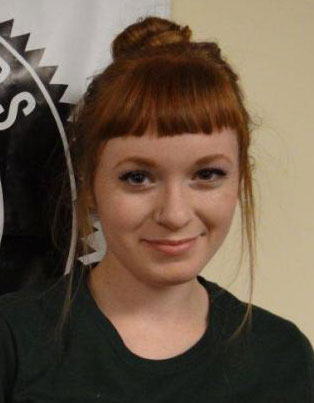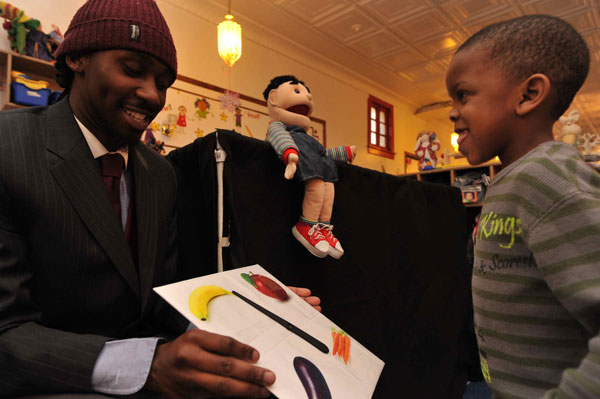by Joy Menhennett, Guest Blogger
We asked Joy Menhennett, Food and Nutrition Education Coordinator for La Casa Norte in Chicago, to write about her experience consulting with the CLOCC Research and Evaluation Interest Group to improve their evaluation effort.
Aveggies! A Nutrition Puppet Show is La Casa Norte’s program aimed to educate 3-5 year olds in Humboldt Park daycare centers about healthy eating habits. The program also engages youth from the community as paid puppeteers. The puppeteers’ responsibilities are to perform the shows and to assist in the creation of the scripts alongside La Casa Norte staff and outside nutrition consultants. We currently have four shows, each with their own theme: Hydration, Sometimes Food/Anytime Food, Growing (Food), and The ABCs of Vitamins. Throughout our evaluation process, we have come across some challenges in obtaining data directly from participating children. The evaluation method we began with involved three pre and post questions that were asked out loud and followed by a show of hands to indicate the children’s responses. We had a few concerns with this because we wanted our evaluations to be both developmentally appropriate for the age group and help us accurately quantify the impact of our program on our young audience. We initially struggled with the wording of the questions and the thought that there might be other evaluation tools better suited for this age range.
Then, I attended the CLOCC Research and Evaluation Interest Group (REIG) meeting hoping to gain some insight on evaluation methods. I explained some of the difficulties we were having with evaluating the children at the daycares. The REIG discussed the request and decided to host a 45-minute consultation with our program before CLOCC’s June Quarterly Meeting to help us improve our evaluation efforts.
I explained to the REIG participants our concerns and challenges of evaluating 3-5 year olds and that we were open to modifying our methods if there were more child-friendly approaches that could be implemented. Some of the issues we were having with our current evaluation efforts were that there was the potential for social influence within the groups that could have affected who would raise their hand, and that the way we phrased the question or at what point we instructed them to raise their hands seemed to have an effect on the outcomes. We also found that some children seemed eager to always raise their hand regardless of the question and that some children wouldn’t engage and respond at all. Therefore, we were searching for something that could reduce the effects of these issues on our evaluation.
Throughout the consultation, we were provided with some great ideas and feedback from people who have had experience working with a similar age group. Some of the suggestions we received included: asking open-ended questions to the kids individually in order to get a better grasp on what specifics they have learned, printing out large pictures of healthy and unhealthy foods and having the children point to which photo is healthy, separating the kids into age groups and doing different age appropriate evaluations, telling the children to put their heads down before raising their hands to respond, or having the puppets with whom the children have been very engaged ask the evaluation questions. We were also provided with some resources for additional literature on the subject of evaluating children.
I am excited to report that we have begun to use the approach where our star puppet, Mike Mike, asks the pre and post questions to the children. We have completed our first trial run at a show, and it went well. The children’s connection with the puppet is apparent in the way in which they appeared to be more engaged while being asked and answering the questions, and they seemed to have a better understanding of what we were asking. We plan to continue to move forward with this method and may use some of the other suggestions as we rework the shows, but for now this is very promising. We appreciate all of the resources, insight, and ideas that were brought forth and will continue to utilize them as our program goes on.
For information on how you can arrange a REIG consultation for your program, contact Sarah Welch or Maryann Mason at CLOCC – swelch@luriechildrens.org or mmason@luriechildrens.org.



